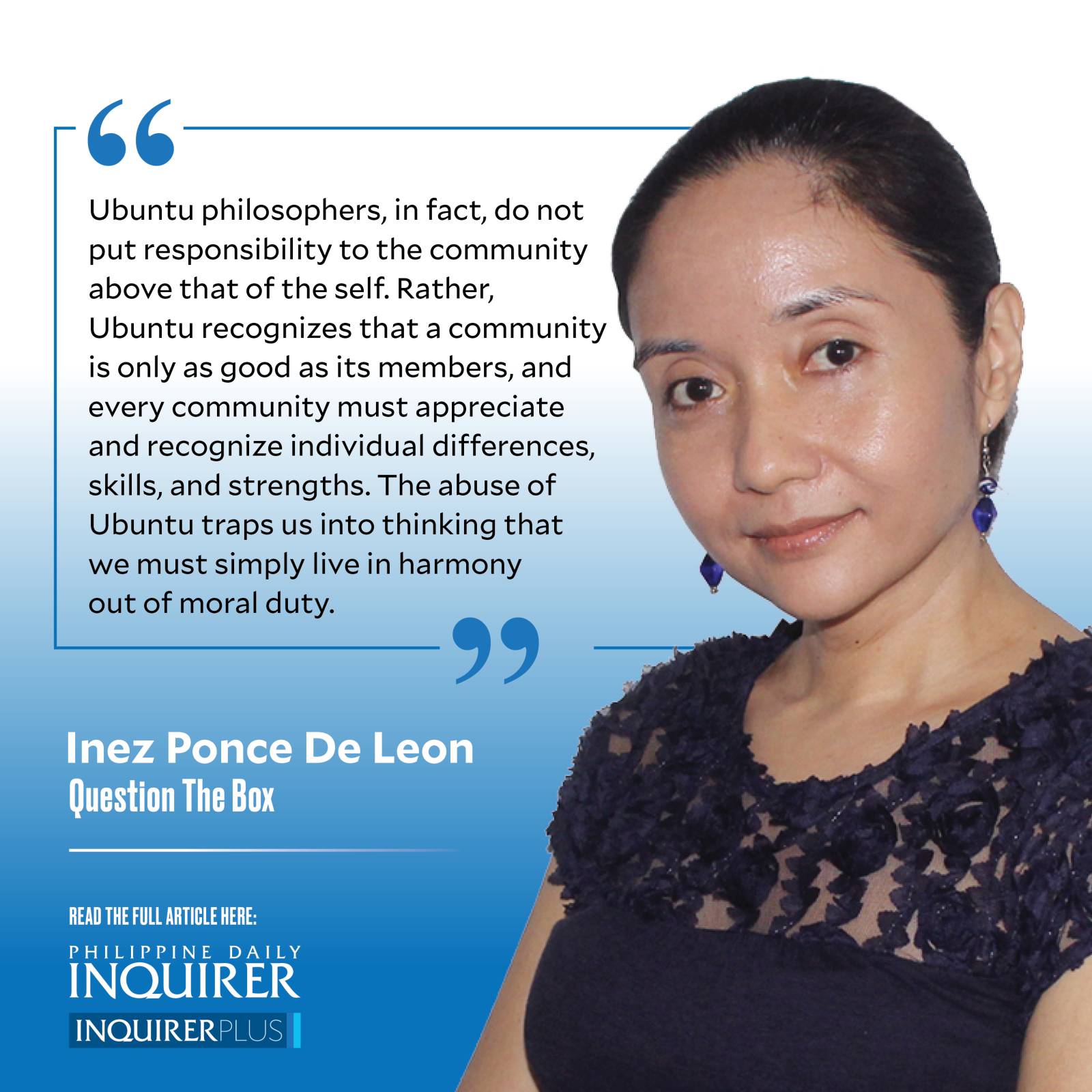‘Ubuntu’ on the debate floor
 Last week, members of the Ateneo Debate Society made history at the World Universities Debating Championships: They became the first-ever Filipino team to win, besting prominent universities of the Global North that traditionally dominate the tournament.
Last week, members of the Ateneo Debate Society made history at the World Universities Debating Championships: They became the first-ever Filipino team to win, besting prominent universities of the Global North that traditionally dominate the tournament.
Congratulations poured in, but were soured when some internet users criticized how the team handled the debate topic: for a better world, all individuals need to have a strong belief in “Ubuntu.”
Ubuntu is a philosophy that believes that individual identity is formed by, and all obligations should be owed to, one’s community. It is difficult to argue against Ubuntu because it implies that to be truly selfless, we must be responsible for each other. Understandably, the opposing team’s core argument was “no man is an island.”
In response, the Ateneo team focused on the idea that in directing all our formation and efforts to community, we are discouraged from discovering our true selves. To surrender everything to a community might also mean surrendering one’s ideals so that an evil status quo can go unchallenged. To abuse Ubuntu is to enable tyranny.
It was this argument that online users spoke up against; such an argument, they warned, should remain on the debate floor. This admonition is unnecessary, as all debaters know and practice. To an outsider, debate seems to be about choosing a side, and gathering information to prove one’s point. Debate, however, is neither cherry-picking nor indoctrination.
When we learned to debate in high school, we were given a topic usually a week, even minutes before the debate, depending on the format.
We, then, had to do research on all sides of the topic. This helped us know the arguments for and against it, the logical loopholes that would dismantle a potential strategy, and the ways that we could build an argument using both research and philosophy. We were given our side of the debate mere minutes before the debate would begin.
What this taught us was that debate is not about the speaker: It is not about personal beliefs or what one defines as moral. Debate is about the argument, and whether or not it is valid and backed by substantive, trustworthy evidence.
By extension, debate teaches us that we are never at the center; we build the argument, and it is never judged by our rhetoric, clothes, or age. The argument is judged on its logical flow, regardless of who is speaking and what they believe in.
By further extension, debate teaches us that the world is not a zero-sum game of pro vs. anti. To make any decision, we need data from both sides of a story; and even then, two completely valid arguments can coexist, with neither one winning over the other.
Take the recent example of the so-called online influencer who exhorted her followers to simply be thankful that they had jobs instead of complaining about their lives. Had this child but taken classes in debate, she would have learned two things.
One, two arguments can both be true. We can be thankful for our jobs while still acknowledging societal ills. In identifying this problem, therefore, we can solve it rather than gloss over it with pathetic positivity.
Two, when provided with evidence to the contrary using stronger arguments: shut up.
The toxic well-wishing for the Ateneo debaters is actually evidence of the danger of abusing the philosophy of Ubuntu. While Ubuntu is noble in acknowledging the role of the community, a critical piece of it also includes: We must learn to be our best selves.
Ubuntu philosophers, in fact, do not put responsibility to the community above that of the self. Rather, Ubuntu recognizes that a community is only as good as its members, and every community must appreciate and recognize individual differences, skills, and strengths.
The abuse of Ubuntu traps us into thinking that we must simply live in harmony out of moral duty. Breaking from oppression, for example, is necessary for true freedom; if a relationship is punishing, then enforcing harmony is no better than oppression.
It is not so much “no man is an island” as it is “everyone is a different island, and each island is in a grand archipelago.” If we want to truly espouse this, perhaps we should see Ubuntu not as a community, and therefore unity; but as humanity, and therefore a world of unique, imperfect humans.
iponcedeleon@ateneo.edu
















